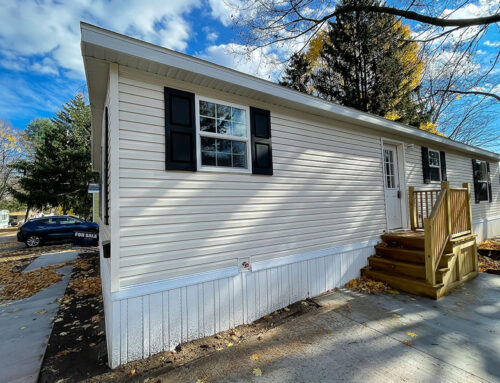If you are a true New Yorker like me, a quick breakfast bite every morning is often an easy choice between bagel and egg sandwich, with a hot cup of coffee. I wish I could say the same when it comes to deciding between wholesaling vs. flipping distressed homes in the state. As a real estate investor working here for the last two decades, I often get asked by new investors about wholesaling vs. flipping in New York and what is the right approach to start working on the first deal. Unfortunately, there is no one-size-fits-all answer.
Whether you are wholesaling or flipping, the biggest hurdles often lie in finding the right undervalued property, evaluating the after-repair value, negotiating, finding buyers, and searching for financing options. Of course, New York has plenty of opportunities for both wholesaling and flipping houses. However, you will have to weigh the pros and cons based on several factors. The key is preparation. Let’s walk through a few factors to consider when weighing the options of wholesaling vs. flipping in New York.
New York Real Estate is Hot Right Now—Whether Wholesaling or Flipping
So, as a new investor, you may be wondering why you should even consider investing in New York real estate right now? Here are the reasons:
Migration from City to Suburbs
During this pandemic, residents have been gradually moving away from their apartments in the city and heading towards upstate New York for spacious single-family homes. Flexible work-from-home policies have further boosted this ongoing exodus from the city to places such as Albany, Poughkeepsie, and even as far as Binghamton. These potential homebuyers are also taking advantage of the current mortgage rates that have hit record lows since the pandemic. For a real estate investor like you, this means there are plenty of takers for the houses you are either wholesaling or flipping.
A Rise in Foreclosure Numbers
Though there has been an extension of the foreclosure moratorium on residential homes across New York state, loosening some of the restrictions recently has led to an increase in foreclosure numbers. Distressed homeowners unable to pay their mortgages are looking for ways to get out of a difficult financial situation by selling their properties. This provides you with an opportunity to help them by wholesaling or flipping these homes for higher upside potential.
The current market conditions are favorable if you’re interested in real estate investing in the Big Apple. However, the market does not help you choose between wholesaling and flipping houses. Your business position does. Let’s discuss the factors you should consider before deciding between wholesaling vs. flipping in New York.
Factors to Consider Regarding Wholesaling vs. Flipping in New York
Whether you are wholesaling or flipping properties, time is of the essence. The time frame for wholesaling is much shorter as compared to flipping. But even with flipping, you still need to get the rehab work done within a limited time frame. Along with time, your financial situation, experience, and investment mindset play a major role in your decision between wholesaling and flipping. The following are the factors to consider regarding wholesaling vs. flipping in New York:
How deep are your pockets?
When you wholesale a property, you are buying it below the market rate to sell it fast without having to make repairs. You can’t afford to sit on the property and pay insurance and taxes averaging around 1.69% across the state. So, you are making an initial deposit to secure the wholesale contract and immediately assigning the contract rights to the investor buyer at a slightly higher price. Your investment is minimal in terms of money. However, if you are rehabbing a property, your stakes are higher with 10% of your money put as a downpayment towards the hard money loan to fund the purchase and renovation of the property.
How much time do you have?
It takes an average of 180 days or 6 months to flip a house. This involves buying the property, making the renovations, and then finding a buyer to sell it off. So, if you are thinking of a rehab project, you need to commit your time. On the other hand, wholesale deals operate on tight margins and timelines. As a real estate wholesaler, you do not need to know anything about rehabbing and spending time finding contractors to do the work. You can pursue wholesaling part-time to build your real estate investment portfolio.
Do you have experience rehabbing?
I often recommend new investors get their feet wet with wholesaling to learn about the market, build relationships with other investors, and gain experience before taking on bigger rehab projects. When wholesaling, with little-to-no experience, you just need to find another buyer before closing the escrow. However, when flipping a house you need to have at least some experience working with contractors and hard money lenders—the people who can make or break your rehab projects. Without any prior experience of rehabbing houses, your chances of getting approved for a hard money loan are pretty slim. Even with a hard money loan, you need to finish the renovation work with your contractor within the decided timeline to avoid paying high-interest rates and out-of-pocket costs.
What do the numbers say?
Evaluating the after-repair value of the property is important in both wholesaling and flipping. In a wholesaling deal, the home has to be priced low enough for another investor to even consider purchasing it. Invariably, this lowers your profit margin. As a real estate wholesaler, you don’t make a lot on individual deals and that is why you need to have access to multiple undervalued properties. When flipping houses, you still buy a home at below-market value but you are responsible for conducting the repairs and selling the property at or above its after-repair value to ensure upside potential. The more you keep your running costs in check while purchasing and rehabbing the property, the higher your ROI.
Do you have too many deals on your hands?
As a new real estate investor, you might get excited or overwhelmed with too many deals on your hands. But do you really have the time and money to rehab all of them? It’s not likely that you’ll be able to if you’re new to the business. And this is where wholesaling gives you a quick way out with some cash flow that can help you maintain liquidity for your rehab projects.
At the end of the day, there is no magic answer to help you decide between wholesaling and flipping. In New York, each of these deals is going to turn out differently for you. The only constant here is the need for leads and you need a smart way to get them.
How to Get Leads for Wholesaling or Flipping Houses
When I started as a real estate investor in New York, I had the same worries deciding between wholesaling and flipping. I found it challenging to locate the right properties and get the right buyers for them until I became a part of the independently owned and operated HomeVestors® franchise network. As a franchisee, I no longer worry about my lead generation strategies. The nationally-known and trusted “We Buy Ugly Houses®” campaign helps distressed homeowners contact me directly once they have decided to sell their properties.
For my wholesaling deals, I have access to the DealVestors® platform where I can just list the properties and get connected to the nationwide network of investors-buyers who are interested in purchasing them. For house flipping, HomeVestors® has a tried-and-true business model that has helped real estate investors like me buy more than 140,000 houses across 47 states and D.C. since 1996. So, whether it is wholesaling or flipping houses in New York, I have the tools, resources, and support to help me achieve my investment goals and establish my career in real estate investing.
If you, too, want to learn how to wholesale or flip properties in New York, request information about becoming a HomeVestors® franchisee today!
Each franchise office is independently owned and operated.
Contact
"*" indicates required fields





